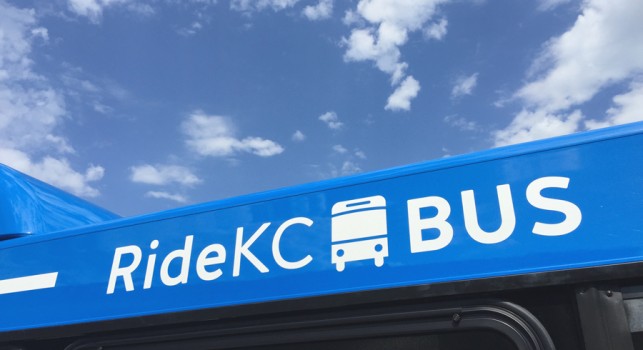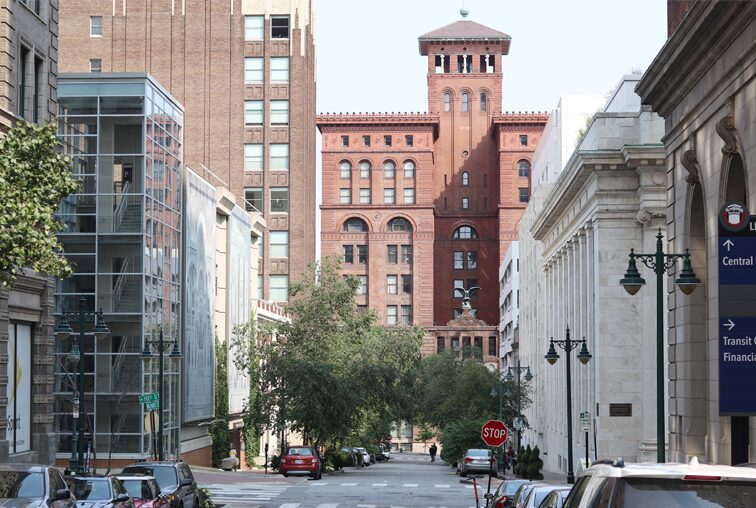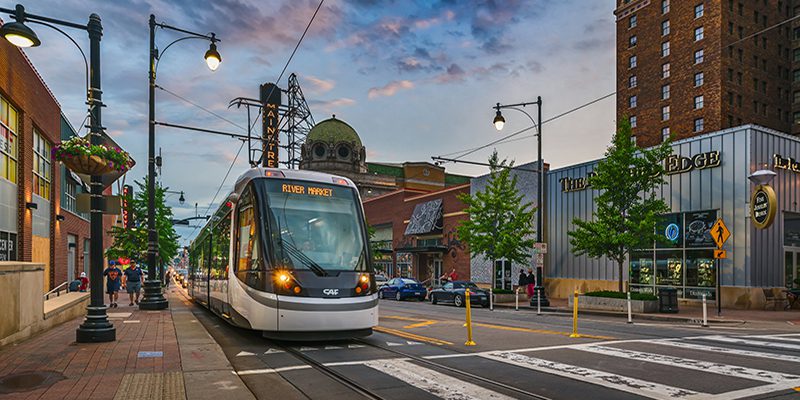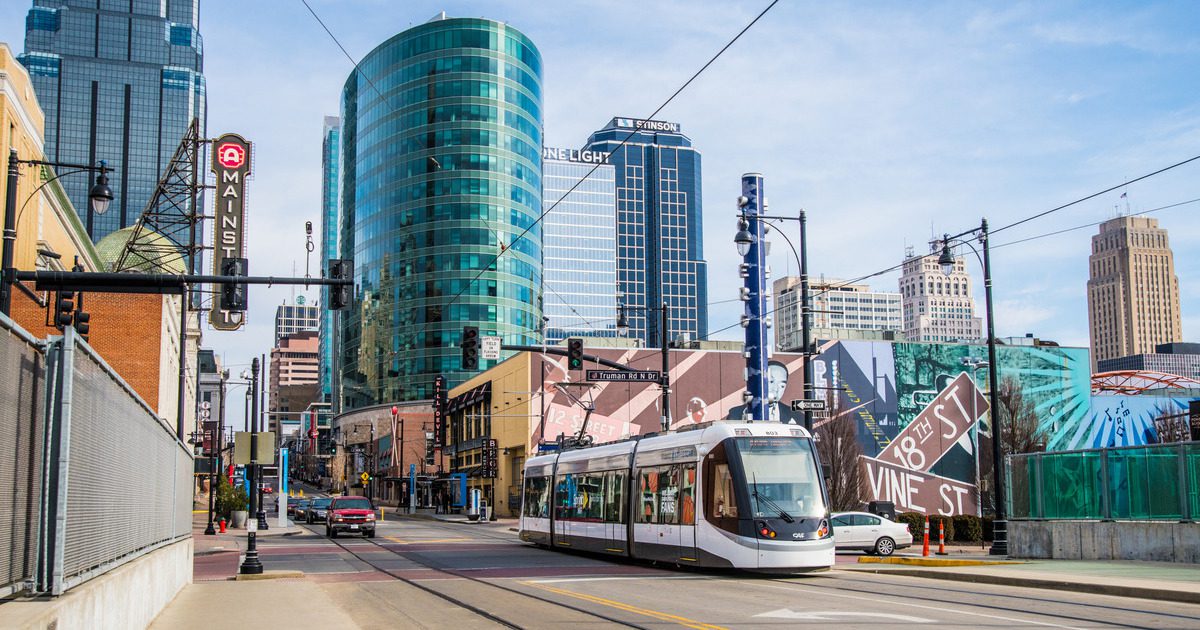Kansas City’s transportation landscape offers diverse options for residents and visitors alike, balancing efficiency with accessibility. If you’re commuting to work, exploring the city’s lively neighborhoods, or planning weekend adventures, KC provides multiple ways to navigate its sprawling metropolitan area. From its expanding streetcar system to well-maintained highways and growing bike infrastructure, understanding your transportation options can significantly enhance your Kansas City experience. Let’s explore how to make the most of getting around this vibrant Midwestern city.
Public Transit Options

- Your gateway to navigating Kansas City’s public transit system efficiently. Source: ridekc.org
Kansas City’s public transit system has undergone a significant transformation in recent years, with RideKC now offering fare-free bus service throughout the city. This zero-fare policy makes Kansas City one of the few major metropolitan areas in the country with completely free public transportation, removing financial barriers to mobility. RideKC operates 89 local bus routes across seven counties in Kansas and Missouri, with the MAX rapid transit line serving high-traffic corridors with priority signaling, fewer stops, and more frequent service. For those needing to travel between suburbs or to neighboring communities, regional passes remain affordable at just $50 per month ($25 for seniors, youth, and riders with disabilities).
The KC Streetcar has become a cornerstone of downtown transportation since its launch, carrying over six million riders in its first three years of operation. Currently running along a free 2.1-mile downtown route, the streetcar is undergoing significant expansion with plans to extend north to the Missouri Riverfront and south to the Country Club Plaza and University of Missouri-Kansas City, potentially adding an additional 9 miles of track by late 2025. Meanwhile, private transportation options flourish throughout the city, including Uber, Lyft, ZipCar, traditional taxis, and scooter services, providing flexible alternatives for short trips or last-mile connections from transit stops.

- Parking in Kansas City: Discover an array of parking options when driving through KC. Source: visitkc.com
Driving in Kansas City
Kansas City boasts one of the most driver-friendly urban environments in the nation, with remarkably efficient commute times averaging just 22.8 minutes—ranking third-best among major U.S. metropolitan areas according to the U.S. Census Bureau. This impressive statistic stems from KC’s well-planned combination of low population density, dispersed employment centers, and exceptionally well-maintained roads and highways. Traffic congestion remains minimal, with Kansas City rated as the second least-congested metropolitan area for populations over 800,000. Drivers here spend only about 14% of their travel time dealing with congestion, a stark contrast to many other major cities.

- A convenient component of Kansas City’s cycling routes and public transit. Source: visitkc.com
The city’s central location makes it an ideal point for regional travel, with Columbia, Missouri, Lawrence, Kansas, and Manhattan, Kansas all accessible within a two-hour drive. Longer road trips to major cities like Chicago, Denver, and Dallas are manageable at around eight hours each. Within the city, parking is plentiful, with approximately 40,000 spaces available downtown alone. The Park KC app simplifies payment for the city’s 1,500 parking meters and municipal garages. When parking along the streetcar route, drivers should note that vehicles must remain completely within the painted white lines to provide proper clearance for the streetcars, which cannot swerve to avoid obstacles.
Biking Infrastructure

- Essential tips and resources to navigate the city with ease. Source: visitkc.com
Kansas City is making bold strides toward becoming a bike-friendly city with plans to construct 1,000 miles of dedicated bike lanes over the next two decades. This extensive network will dramatically improve cyclist safety and connectivity throughout the region, creating thorough routes that accommodate both commuters and recreational riders. The city’s bike-share program, KC B-Cycle, now features 46 stations strategically positioned around popular destinations, offering convenient short-term bike rentals for residents and visitors. This system has become increasingly popular as both a practical transportation alternative and a leisurely way to explore KC’s diverse neighborhoods.
The regional trail network continues to expand, with significant developments like the Rock Island Railroad Corridor adding 17 miles of shared-use paths. This important connection brings the 500-mile Katy and Rock Island Trails network—which links Kansas City and St. Louis—within just 6-8 miles of completion. Johnson County offers over 35 miles of trails through the Turkey Creek Streamway, Shawnee Mission Park, Mill Creek Streamway, and various Kansas bike trails. These expanding trail systems not only provide safe cycling routes separated from vehicular traffic but also connect neighborhoods, parks, and business districts while offering opportunities for exercise and outdoor recreation throughout the metropolitan area.
Transportation Tips & Resources
The Visit KC Visitor Center at 1111 Main Street serves as an excellent starting point for transportation information, staffed by local experts who can provide personalized guidance on navigating the city. Located just steps from the KC Streetcar’s Metro Center stop, the center operates Tuesday through Saturday from 10 a.m. to 4 p.m. and offers resources to help visitors and residents alike make informed transportation decisions. When planning your journey, useful tools can be invaluable—the RideKC app allows users to purchase transit passes, track buses in real-time, and plan optimal routes, while ride-sharing apps provide on-demand service throughout the metro area. For those new to public transit, RideKC’s “How-To-Ride” resources offer step-by-step instructions, and their helpline at (816) 221-0660 provides personalized assistance.
Moving between Kansas City’s key districts is straightforward with multiple transportation options. The KC Streetcar provides free, frequent service connecting the River Market, Downtown, Crossroads Arts District, and Crown Center, with the upcoming extension set to reach the Country Club Plaza by 2025. For airport travel, Kansas City is served by three airports, with Kansas City International Airport (MCI) being the primary commercial hub. RideKC offers direct bus service to the airport, while ride-sharing services and traditional taxis provide door-to-door convenience. For those visiting the metro area, knowing that the downtown grid is generally easy to navigate and that most major attractions are within a 15-minute drive of the city center can help make transportation planning less stressful.
